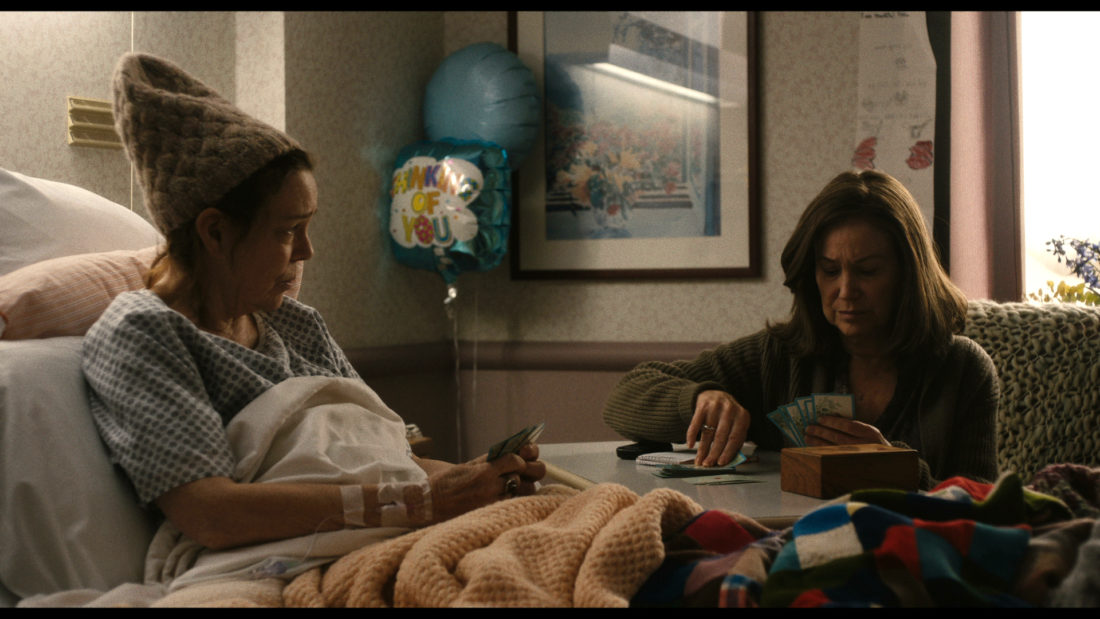“What’s wrong?” This line is the first bit of dialogue uttered in Diane, the debut narrative feature film from movie critic/documentarian Kent Jones, and it is the sentiment that lingers over viewers for 95 long minutes.
The film stars the exceptional Mary Kay Place in a rare leading role as the titular widowed, middle-aged woman who seemingly puts everyone and everything before herself. From her drug-addicted son (Jake Lacy, Carol) to her cancer-ridden cousin (Deirdre O’Connell, Showtime’s “The Affair”), with plentiful casserole deliveries in between, she spreads her time and patience too thin for any one person to manage. Almost everyone has a “Diane” in his or her life, and while she tirelessly serves those around her as some sort of silent penance, we the viewers are tasked with uncovering just what exactly this self-imposed martyr is reconciling.
Clues arise through Diane’s frequent journaling, and in one of these scenes we see her write the phrase “my one terrible sin,” implying that all of Diane’s good deeds are shrouded in repentance for something heavy, dark and painful. As such, her incessant stewardship is not nearly as selfless as it appears on its surface — it is her lonesome quest for absolution.
Death, regret and isolation are prominent themes inflicted upon nearly every character here, none more so than our protagonist. Viewers watch Diane deal with incredibly stressful events with deeply relatable human emotion — including a screaming match while serving soup at a homeless shelter and a dive bar breakdown to the tunes of Bob Dylan and Right Said Fred — but ultimately, we never really get to the core of her. We’re left on the outside, looking in, wondering who Diane truly is. She remains a mundane enigma, a woman still scourging herself with a shameful past, still searching for peace in the dark woods.
While effective in delivering its message, the pitfalls of Diane arise through its sluggish, sometimes painfully slow pacing and heavy religious overtones. The progression of the film’s most dramatic moments are executed with choppy, highly stylized transitions and eerie church bell interludes, but ultimately they don’t accomplish the artistic effect for which the filmmakers were obviously aiming.
Though Diane intimately studies its characters with flashes of intense vulnerability, it never fully delves into the nitty-gritty of any characters’ story, leaving viewers with a vague sense of familiarity. This begs the question: Is this a story worth being told? And if it is, is this the best way to tell it?
My answer: Not entirely. Though the performances are nuanced and quietly moving, the weighty monotony and tedious pacing of the film ultimately underserves them and audiences alike.
Now playing at Grail Moviehouse




Before you comment
The comments section is here to provide a platform for civil dialogue on the issues we face together as a local community. Xpress is committed to offering this platform for all voices, but when the tone of the discussion gets nasty or strays off topic, we believe many people choose not to participate. Xpress editors are determined to moderate comments to ensure a constructive interchange is maintained. All comments judged not to be in keeping with the spirit of civil discourse will be removed and repeat violators will be banned. See here for our terms of service. Thank you for being part of this effort to promote respectful discussion.